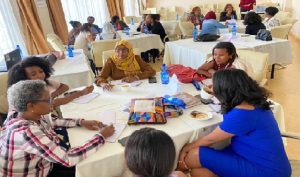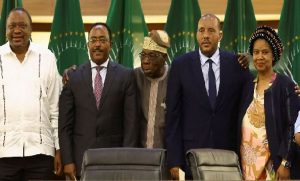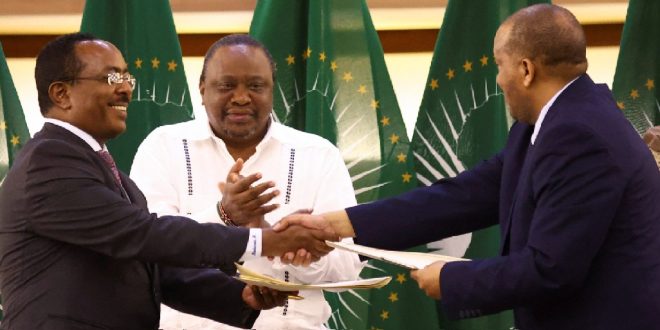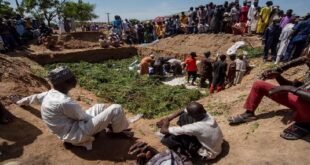13-05-2023
ADDIS ABABA: Six months have passed since a cessation of hostilities agreement was reached to end the two-year war in northern Ethiopia. The deal, signed by the Ethiopian government and Tigray People’s Liberation Front (TPLF) under the auspices of the African Union, should be lauded for establishing a framework to halt a conflict that killed hundreds of thousands of civilians but the agreement can, and must, be enhanced. Only a comprehensive and inclusive peace deal one that expands the range of combatant forces and regional conflicts it includes will bring Ethiopia closer to the day when it will never again suffer through such a tragic war. And  Ethiopian women and girls, who have been excluded from the peace process, must be given a seat at the table. As we have seen in Sudan, fragmented peace processes sidelining women lead to limited agreements perpetuating the cycle of war.
Ethiopian women and girls, who have been excluded from the peace process, must be given a seat at the table. As we have seen in Sudan, fragmented peace processes sidelining women lead to limited agreements perpetuating the cycle of war.
The Tigray war was the world’s most hidden conflict, receiving very little international attention. The number of civilian deaths has been estimated at 600,000, exceeding the Ukraine war in lethality. Millions were forced to flee their homes, more than half of them women and children. Hospitals and emergency clinics were destroyed.
The scale of the brutality against women and girls is almost too painful to relay. According to a United Nations panel of experts, sexual and gender-based violence in particular rape was perpetrated on a “staggering scale” by all parties to the conflict. Investigative reports all agree that survivors suffered profound violations to their physical and psychological integrity that will scar them for life.
While accountability for crimes committed against the victims is a necessary component of lasting peace, I believe we must first find the women, support them, give them space to heal, and provide them with the psychosocial support they need.
 Last November, when Ethiopian government and TPLF negotiators met in Pretoria, South Africa, the parties had the strength to stand against war. Yet, peace is always a work in progress. Moussa Faki Mahamat, the chairperson of the African Union Commission, said as much during a ceremony last week commemorating the deal. “We know that much still remains to be done,” he noted, citing the need for further work on political dialogue, transitional justice, disarmament, demobilization, and reintegration.
Last November, when Ethiopian government and TPLF negotiators met in Pretoria, South Africa, the parties had the strength to stand against war. Yet, peace is always a work in progress. Moussa Faki Mahamat, the chairperson of the African Union Commission, said as much during a ceremony last week commemorating the deal. “We know that much still remains to be done,” he noted, citing the need for further work on political dialogue, transitional justice, disarmament, demobilization, and reintegration.
A stable and peaceful Ethiopia is vital for regional stability at a moment when the Horn of Africa is spiraling further into crisis. The AU can bolster the peace in Ethiopia by engaging forces that fought in the Tigray war but weren’t part of the peace negotiations in Pretoria. Further, the AU should seize the historic opportunity to include armed groups involved in conflicts afflicting other regions of Ethiopia. The news that the Ethiopian government participated in talks with the Oromo Liberation Army (OLA) from the Oromia region is indicative of what is possible. An all-Ethiopia peace process could usher our country into a new era. (Int’l Monitoring Desk)
 Pressmediaofindia
Pressmediaofindia




